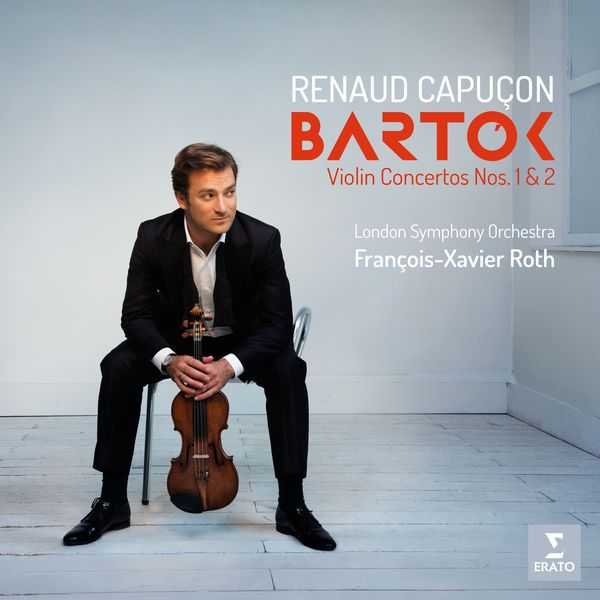

Composer: Béla Bartók
Performer: Renaud Capuçon
Orchestra: London Symphony Orchestra
Conductor: François-Xavier Roth
Format: FLAC (tracks)
Label: Erato
Catalogue: 9029570807
Release: 2018
Size: 1.05 GB
Recovery: +3%
Scan: yes
Violin Concerto No. 1, BB48a, Sz 36
01. I. Andante sostenuto
02. II. Allegro giocoso
Violin Concerto No. 2, Sz 112
03. I. Allegro non troppo
04. II. Andante tranquillo
05. III. Allegro molto
Renaud Capuçon expands his wide-ranging concerto discography with Bartók’s two violin concertos. Composed almost three decades apart, they are highly contrasted, inhabiting very different emotional and musical worlds. Partnering Capuçon is the London Symphony Orchestra under its Principal Guest Conductor, François-Xavier Roth.
Like his former compatriot Christian Ferras, whom he greatly admires, Renaud Capuçon has been gradually building up a lovely discography, working with the greatest orchestral conductors around today. Completely dedicated to Bartók, this new album offers two concertos by the Hungarian composer with the London Symphony Orchestra conducted by François-Xavier Roth.
Not many works have endured as tumultuous a history as the First Concerto. Composed in 1907-1908 for the violinist and friend of Bartók’s, Stefi Geyer, it remained in manuscript form long after the composer’s death and was finally performed 50 years after it was written, in Basel, by Paul Sacher, patron, conductor, and friend of both Bartók and the Swiss violinist Hansheinz Schneeberger. As for the Second Concerto written in 1938, by an ironic twist of history, it was performed twenty years before the First. The two works are very stylistically different: the First Concerto is lyrical and polytonal in its composition, whereas the Second flirts with a dodecaphonism that Bartók never adopted fully. Oddly avoided by generations of violinists, today these two concertos seem to be drawing the admiration of a new generation of virtuosos free of the prejudices of their predecessors, and who have mastered the language of the 20th century. Renaud Capuçon gives a very able version here, foregrounding Bartók’s unique way of expressing himself, partway between classical and popular music.



